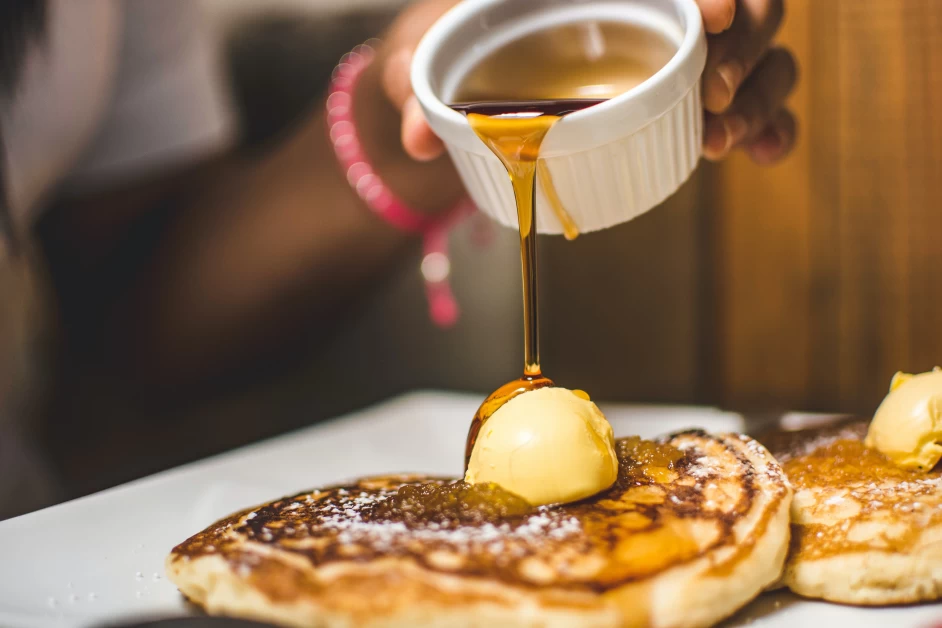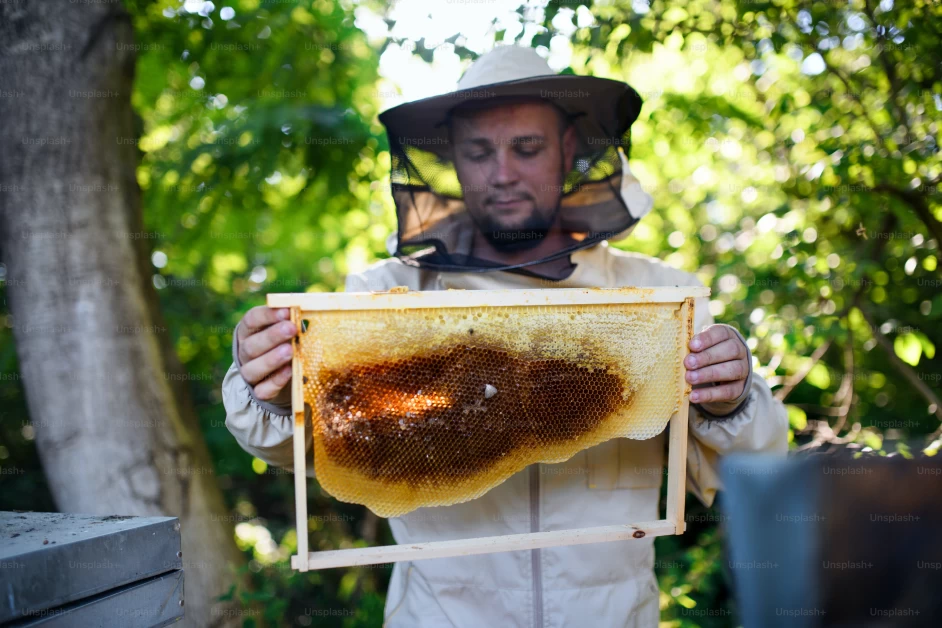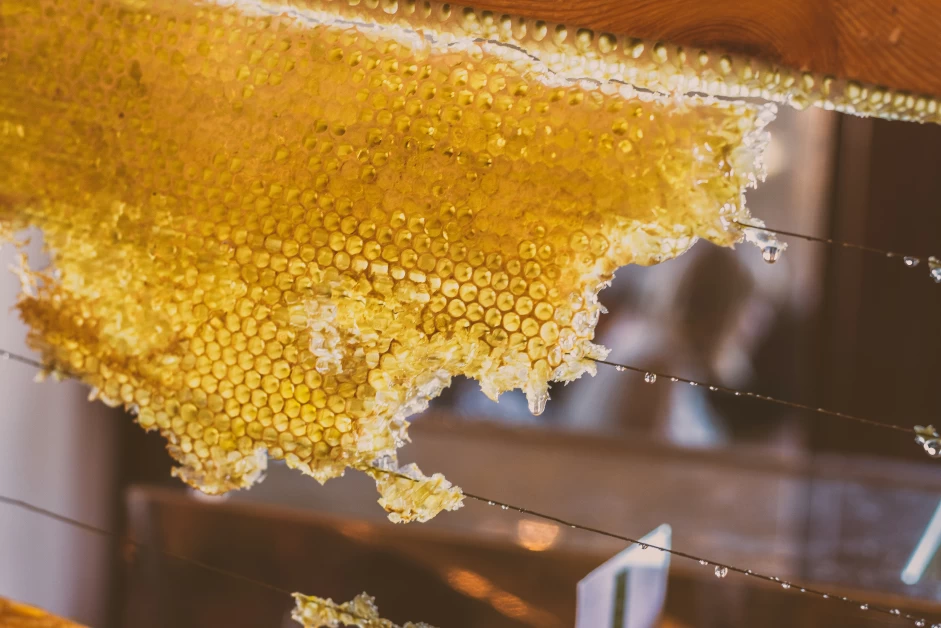Introduction
Manuka honey, derived from the Manuka bush found in New Zealand and Australia, is a unique type of honey known for its remarkable antimicrobial properties. This honey stands out from others due to its active element, methylglyoxal (MGO), which contributes to its antibacterial, antioxidant, antiviral, and anti-inflammatory attributes. For centuries, manuka honey has been utilized as a natural remedy for various ailments and has been valued by Indigenous people for its healing properties.
In this article, we will explore the amazing health benefits of manuka honey, with a specific focus on its role in promoting gut health. We will discuss how manuka honey can aid in wound healing, soothe sore throats, support gut health, aid in gastric ulcer treatment, help with gastroenteritis, exhibit antiviral properties, combat antibiotic-resistant infections, prevent dental plaque, aid in managing cystic fibrosis, and be effective against inflammatory skin conditions.
Manuka honey has been widely recognized for its ability to support the healing process and reduce pain when applied directly to wounds. In fact, the US Food and Drug Administration has approved manuka honey as a treatment option for wounds. The antimicrobial properties of manuka honey, attributed to its active component MGO, help prevent infection and promote faster healing.
Moreover, manuka honey creates a moist environment that aids in wound healing by providing a protective barrier and preventing the formation of scabs. This allows the growth of new skin cells and reduces the risk of scarring.
Soothes Sore Throats
Combining honey and lemon has long been a popular remedy for coughs and colds. Studies have shown that honey is more effective than over-the-counter cough suppressants in relieving coughs, leading to revised guidelines recommending honey as a first-line treatment for coughs.
Manuka honey, with its potent antimicrobial properties, can help soothe sore throats caused by infections. Its ability to reduce inflammation and fight off bacteria makes it an excellent natural remedy for throat discomfort.
Supports Gut Health
Maintaining a healthy gut is crucial for overall well-being, and manuka honey can play a significant role in supporting gut health. Manuka honey acts as a prebiotic, providing non-digestible carbohydrates that nourish beneficial bacteria in the gut.
The prebiotic properties of manuka honey promote the growth of good bacteria, such as Lactobacillus and Bifidobacterium, while inhibiting the growth of harmful bacteria. This helps maintain a balanced gut microbiome and supports optimal digestion and nutrient absorption.
May Aid in Gastric Ulcer Treatment
Gastric ulcers can cause significant discomfort and may lead to complications if left untreated. Research has shown that manuka honey has the potential to protect against the damaging effects of gastric ulcers.
The anti-inflammatory properties of manuka honey help reduce inflammation in the stomach lining, while its antimicrobial properties help manage infections that can contribute to the development and progression of gastric ulcers. Additionally, manuka honey acts as a natural barrier, safeguarding the gut lining from further damage.
May Help with Gastroenteritis
Gastroenteritis, commonly known as the stomach flu, is characterized by inflammation of the stomach and intestines. It is often caused by viral or bacterial infections, such as clostridium difficile.
Evidence suggests that manuka honey, with its antibacterial properties, can assist in treating gut infections like clostridium difficile. Furthermore, manuka honey can help reduce the duration of symptoms associated with gastroenteritis, such as diarrhea, due to its antimicrobial and anti-inflammatory effects.
Exhibits Antiviral Properties
In addition to its antibacterial properties, manuka honey has been found to exhibit antiviral properties. Studies have shown that manuka honey has the potential to inhibit the replication of influenza viruses and shingles.
While further research is needed to fully understand the antiviral effects of manuka honey, these findings are promising and suggest that it may have the potential to be used as a natural antiviral agent.
May Combat Antibiotic-Resistant Infections
The rise of antibiotic-resistant infections is a growing concern worldwide. As traditional antibiotics become less effective, alternative therapies are being explored. Recent studies have shown the potential of medical-grade honey, such as manuka honey, in treating multidrug-resistant infections.
The unique composition of manuka honey, including its high levels of MGO, makes it effective against a wide range of bacteria, including antibiotic-resistant strains. Manuka honey can disrupt the growth and survival of bacteria, making it a valuable tool in the fight against antibiotic resistance.
Helps Prevent Dental Plaque
Contrary to expectations, manuka honey’s antibacterial properties make it beneficial for dental health. Dental plaque is a sticky film that forms on teeth and can lead to gum diseases like gingivitis.
The antimicrobial properties of manuka honey can help minimize the buildup of dental plaque, reducing the risk of gum diseases. Regular use of manuka honey as part of an oral hygiene routine may contribute to better overall dental health.
Aids in Managing Cystic Fibrosis
Cystic fibrosis is a genetic disorder that affects the lungs and other organs. Upper respiratory infections are common in individuals with cystic fibrosis and can lead to complications.
Manuka honey’s potent antibacterial properties can enhance the effects of antibiotics in cystic fibrosis patients with upper respiratory infections. It may serve as a valuable treatment strategy in managing these infections and improving the quality of life for individuals with cystic fibrosis.
Effective Against Inflammatory Skin Conditions
In addition to its antibacterial and wound-healing properties, manuka honey is being researched for its potential in treating inflammatory skin conditions such as rosacea and acne. Test tube studies have shown that manuka honey has the ability to modulate the immune system of the skin, reducing inflammation and promoting healing.
The antioxidant properties of manuka honey also contribute to its effectiveness in managing skin disorders. Antioxidants help neutralize free radicals, which can contribute to inflammation and skin damage.
Incorporating Manuka Honey into Your Diet
To enjoy the health benefits of manuka honey while avoiding excessive sugar consumption, it is recommended to have a maximum of two teaspoons (15g) per day. You can incorporate manuka honey into your balanced diet by drizzling it over porridge, overnight oats, or natural yogurt. Be sure to choose reputable brands that undergo lab testing for authenticity and MGO grade rating.
Overall, manuka honey can be a valuable addition to your diet and daily routine. Its remarkable antimicrobial properties, along with its potential to support wound healing, soothe sore throats, promote gut health, aid in gastric ulcer treatment, help with gastroenteritis, exhibit antiviral properties, combat antibiotic-resistant infections, prevent dental plaque, aid in managing cystic fibrosis, and be effective against inflammatory skin conditions, make it a versatile and beneficial natural remedy. Incorporate manuka honey into your wellness routine and reap the numerous health benefits it has to offer.









